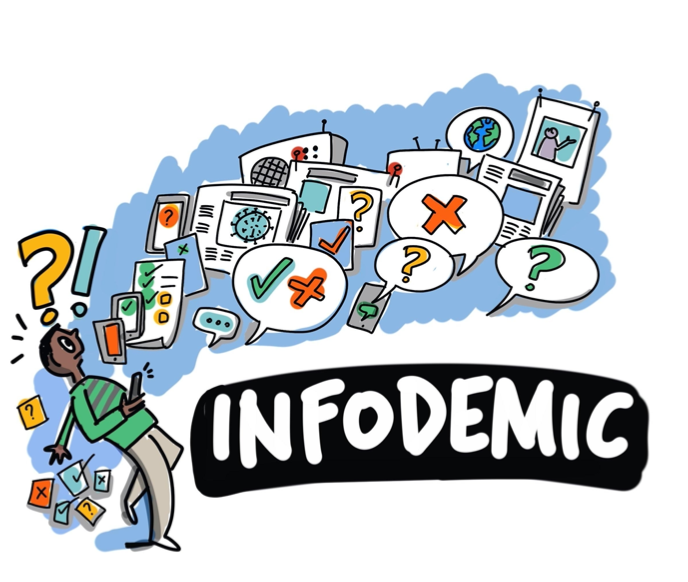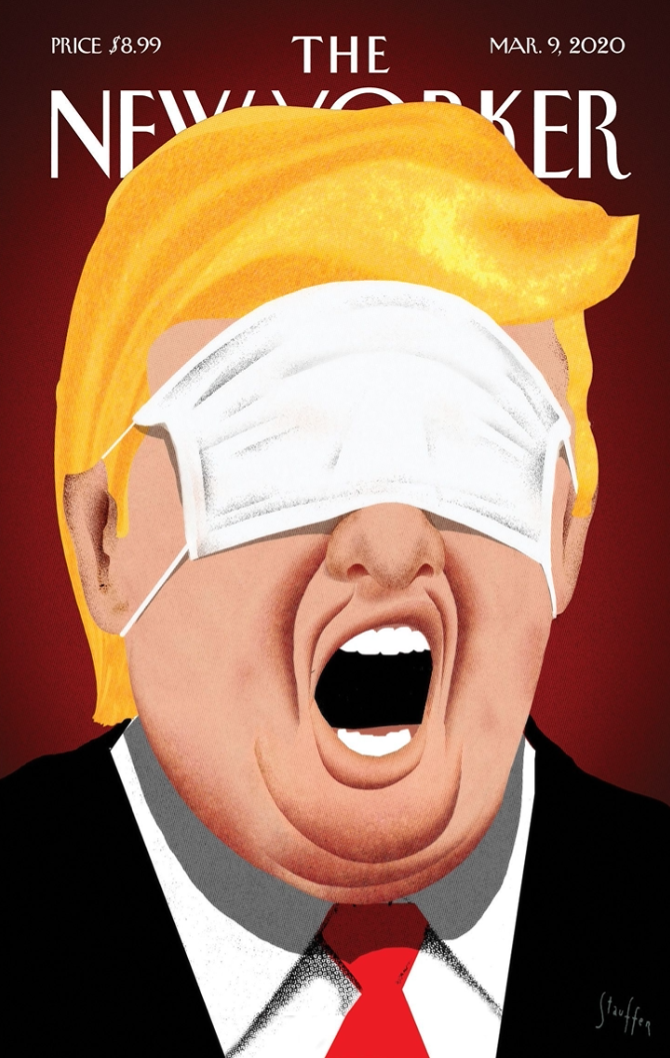Rumors, conspiracy theories, and erroneous accusations about Covid-19 abound in our media environment. In February 2020, the World Health Organization proclaimed an “infodemic” in which citizens are confronted with an overwhelming amount of facts and falsehoods that coexist in close proximity.
Misinformation can take many forms in our current moment

Incorrect statements pertain to the origins of the virus (bioweapon, 5G, bat soup), miracle cures (oregano oil, vitamin C, salt water, anti-malarial drugs, bleach), and the effectiveness of masks, social distancing, and vaccines.

Driving factors of misinformation include the general instability and constantly changing dynamics of the virus along with the opportunity seized by some to make money off of people’s anxieties and fears. The Trump administration and their allies’ politicization of the virus to bolster power often involved spreading misinformation.
References: The World Health Organization’s Infodemic initiative. Image credits: Sam Bradd/WHO, “Infodemic.” Biran Stauffer, “Under Control,” cover, New Yorker, March 9, 2020. Background theme image from Shutterstock.
